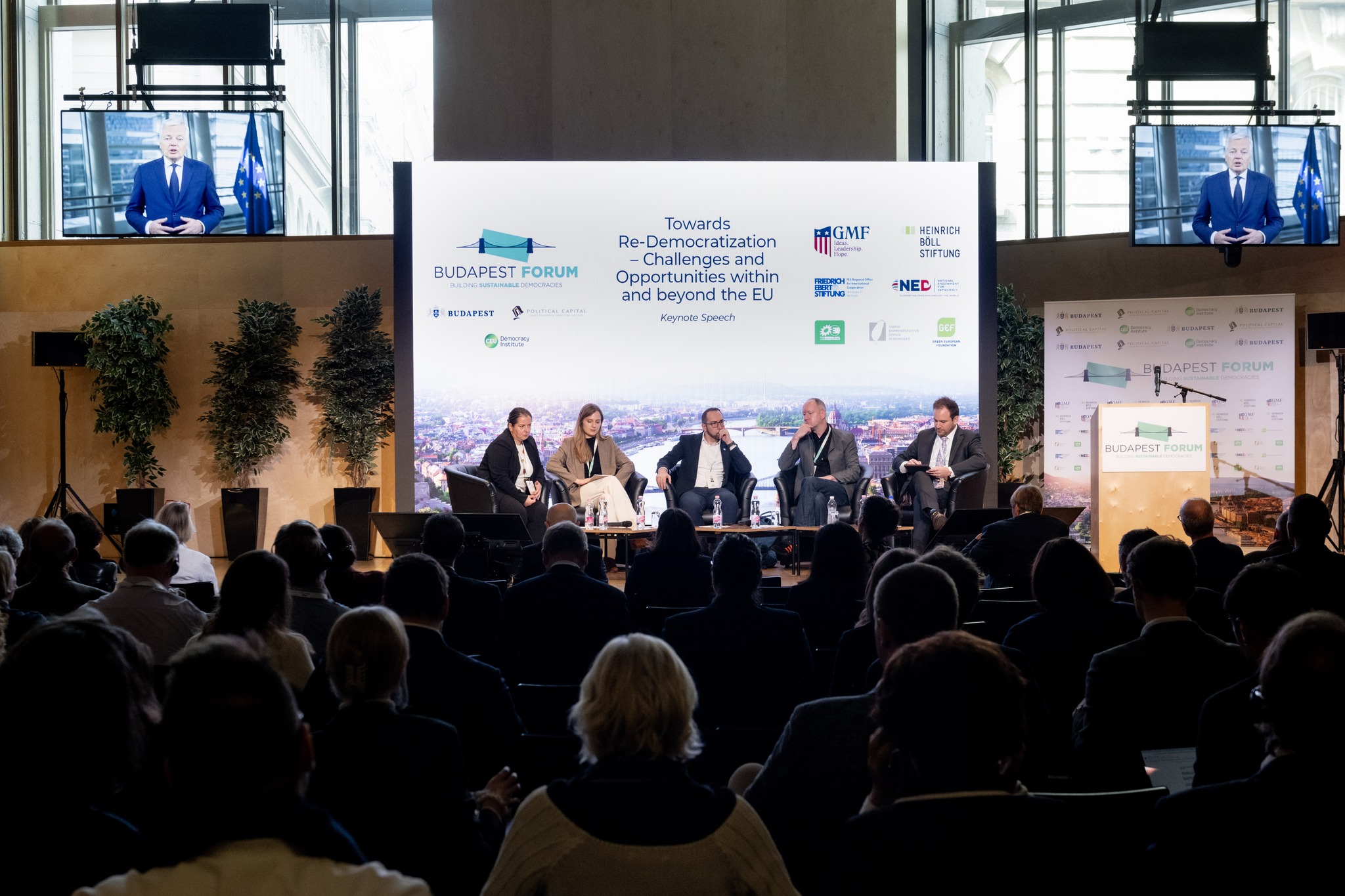Budapest Forum 2023 - Towards re-democratization – Challenges and Opportunities within and Beyond the EU
2023-10-19
Speakers
- Matthijs Bogaards, Associate Professor, CEU; Research Affiliate, CEU Democracy Institute
- Flóra Garamvölgyi, US Correspondent, Radio Free Europe/Radio Liberty
- Tomislav Tomašević, Mayor of Zagreb
- Anna Unger, Assistant Professor, Institute of Political and International Studies, Eötvös Lóránd University
Moderator: Benjamin Novak, Doctoral candidate, John Hopkins University; Research Affiliate, CEU Democracy Institute

Main takeaways
- AI poses a danger to democracies; it will probably be a weapon in election campaigns, not just with fake news but also with deep fake videos and audio. Even though people are skeptical of mainstream media, the deep fake is much harder to recognize.
- As the dangers of AI could also affect the upcoming EU elections, the EU should develop a mechanism to stop it.
- The heart of democracy is on the local level; there is neither democracy nor representation without the people. Therefore, politicians should represent people, not just call for their attention and support ahead of the elections, but constantly focus on local issues and the interests of local people.
- In times of crisis, it is not about strengthening democracy but defending it, which cannot be done with the institutions trying to destroy it.
- Currently, we can only dream about re-democratization; defending democracy and developing democratic resilience are much more realistic to achieve.
- Results show when de-democratization or autocratization starts, four out of five democracies die.
- For democratic resilience, independent courts, informed citizens, and media freedom are crucial.
- The biggest problem worldwide is not de-democratization but that the existing autocracies are becoming even more autocratic.
- Pro-European forces have to provide a clear image of the stakes of the elections. The message of the Eurosceptic, sovereigntist, and extremist forces is clear, but from the other side, only buzzwords that are not translatable for everyday life are visible, without a clear picture of European cooperation.
- The concept of the European Union became contested but only from the side of populist and far-right actors. Pro-EU actors should also tell their part of the story: why they think the EU is important, what they are doing, and how it affects and improves people’s lives.
- To strengthen democracy, we should not accept and use the narratives provided by the far right.
- The EU should also democratize itself. On the one hand, it should engage more in democratic debates and not ignore initiatives such as it did with the European Citizens Initiative. On the other hand, it should participate more in national politics.
- To strengthen re-democratization in the EU, on the first hand, we have to admit the process of de-democratization and the responsibility with it. Every autocracy stands on three important legs: 1) physical, 2) administrative, 3) economic. For example, the EU has a strong economic pillar in Hungary, which it can weaken to go against de-democratization.
- The autocratization process in Hungary's example consists of four steps: 1) silencing and restructuring the media, 2) restructuring safeguard institutions, 3) changing the elected bodies, and 4) modifying the electoral system.
- Liberal democracy is based on individualism, and it has to be. In times of crisis, the far-right is pushing the notion of community - but this version of community is exclusionary - in that sense, we should combine the concept of liberal democracy and individualism, especially in cities with multiple notions of communities.
Policy recommendation
- As the dangers of AI could also affect the upcoming EU elections, the EU should develop a mechanism to stop it.
- The EU should put an emphasis on local democracy.
- Pro-EU actors should also tell their part of the story: why they think the EU is important, what they are doing, and how it affects and improves people’s lives.
- The EU should also democratize itself. On the one hand, it should engage more in democratic debates and not ignore initiatives such as it did with the European Citizens Initiative. On the other hand, it should participate more in national politics.
Copyright 2026. Political Capital Policy Research and Consulting Institute, all rights reserved.

